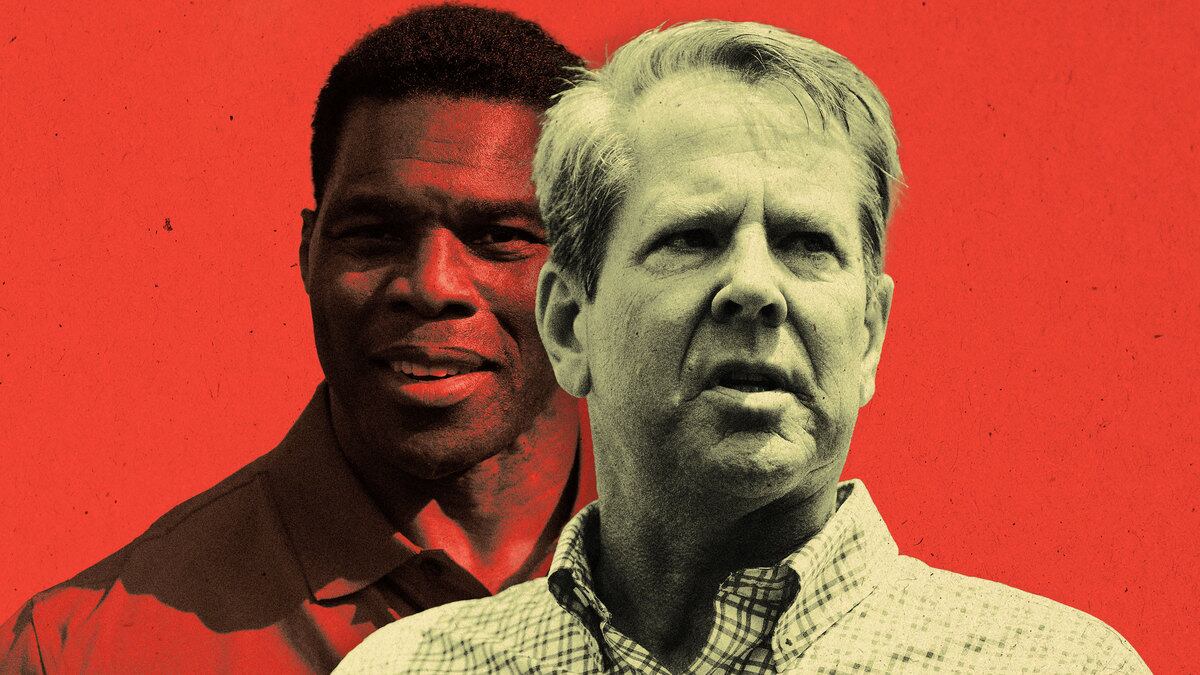Elections
Photo Illustration by Kelly Caminero / The Daily Beast / Getty
Brian Kemp Finally Embraces Georgia Election Denier Herschel Walker
RUN PASS OPTION
Herschel Walker criticized Georgia’s elections in 2020 under Brian Kemp. Now, Kemp is dragging Walker over the goal line of his 2022 Senate bid.





